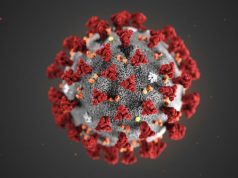

Dr Anushi Rajapaksa, 29, and her team at Murdoch Childrens (OK) Research Institute and Monash University developed a novel way of turning a liquid vaccination into an aerosol form against the flu.
In a world first study, the researchers used a plasmid DNA vaccine and came up with a novel way of aerosolising sensitive biomolecules via the use of very small but powerful sound waves. Dr Anushi, who was born in Colombo, told Bernama she was thrilled at her team’s success.
She said the development held a lot of promise for a replacement to vaccine injections which are associated with safety concerns in developing countries, requiring expensive and specialised handling, refrigeration and staff training that many places in the world cannot afford.
Dr Anushi, who studied at Visakha Vidyalaya School, Colombo and Monash University here, said the application of this technology in a third world country such as Sri Lanka was enormous.


There is huge potential of this work to be used for mass vaccination programmes especially in developing countries with limited resources.” The nebulizer works as droplets containing the vaccine are inhaled and deposited on the surfaces of the lung.
Once the DNA of the vaccine is introduced into a person’s cells, those cells produce “antigen” proteins. The immune system is trained to attack the disease by producing antibodies against these antigen proteins.
-BERNAMA










